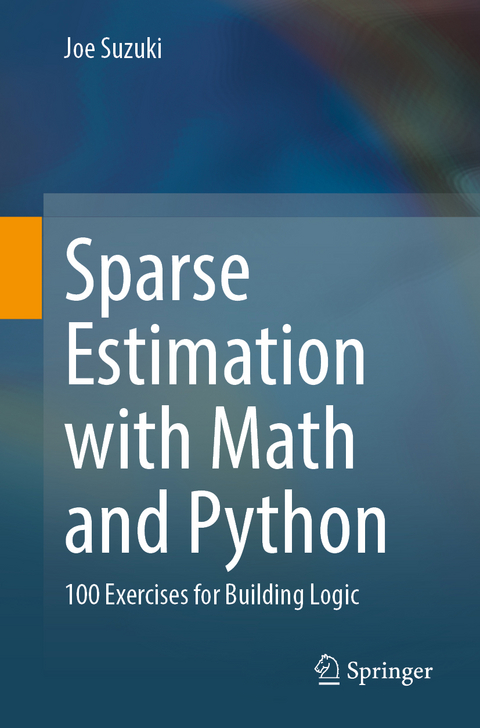
Sparse Estimation with Math and Python
100 Exercises for Building Logic
Seiten
2021
|
1st ed. 2021
Springer Verlag, Singapore
9789811614378 (ISBN)
Springer Verlag, Singapore
9789811614378 (ISBN)
The most crucial ability for machine learning and data science is mathematical logic for grasping their essence rather than knowledge and experience. This textbook approaches the essence of sparse estimation by considering math problems and building Python programs. Each chapter introduces the notion of sparsity and provides procedures followed by mathematical derivations and source programs with examples of execution. To maximize readers’ insights into sparsity, mathematical proofs are presented for almost all propositions, and programs are described without depending on any packages. The book is carefully organized to provide the solutions to the exercises in each chapter so that readers can solve the total of 100 exercises by simply following the contents of each chapter.
This textbook is suitable for an undergraduate or graduate course consisting of about 15 lectures (90 mins each). Written in an easy-to-follow and self-contained style, this book will also be perfect material for independent learning by data scientists, machine learning engineers, and researchers interested in linear regression, generalized linear lasso, group lasso, fused lasso, graphical models, matrix decomposition, and multivariate analysis.
This book is one of a series of textbooks in machine learning by the same Author. Other titles are:
Statistical Learning with Math and R (https://www.springer.com/gp/book/9789811575679)
Statistical Learning with Math and Pyth (https://www.springer.com/gp/book/9789811578762)
Sparse Estimation with Math and R
This textbook is suitable for an undergraduate or graduate course consisting of about 15 lectures (90 mins each). Written in an easy-to-follow and self-contained style, this book will also be perfect material for independent learning by data scientists, machine learning engineers, and researchers interested in linear regression, generalized linear lasso, group lasso, fused lasso, graphical models, matrix decomposition, and multivariate analysis.
This book is one of a series of textbooks in machine learning by the same Author. Other titles are:
Statistical Learning with Math and R (https://www.springer.com/gp/book/9789811575679)
Statistical Learning with Math and Pyth (https://www.springer.com/gp/book/9789811578762)
Sparse Estimation with Math and R
Joe Suzuki is a professor of statistics at Osaka University, Japan. He has published more than 100 papers on graphical models and information theory.
Chapter 1: Linear Regression.- Chapter 2: Generalized Linear Regression.- Chapter 3: Group Lasso.- Chapter 4: Fused Lasso.- Chapter 5: Graphical Model.- Chapter 6: Matrix Decomposition.- Chapter 7: Multivariate Analysis.
| Erscheinungsdatum | 05.11.2021 |
|---|---|
| Zusatzinfo | 46 Illustrations, color; 8 Illustrations, black and white |
| Verlagsort | Singapore |
| Sprache | englisch |
| Maße | 155 x 235 mm |
| Themenwelt | Mathematik / Informatik ► Informatik ► Datenbanken |
| Informatik ► Theorie / Studium ► Algorithmen | |
| Informatik ► Theorie / Studium ► Künstliche Intelligenz / Robotik | |
| Mathematik / Informatik ► Mathematik | |
| Schlagworte | fused lasso • generalized linear lasso • Graphical Models • group lasso • linear regression • machine learning • Matrix decomposition • multivariate analysis • Sparse Estimation |
| ISBN-13 | 9789811614378 / 9789811614378 |
| Zustand | Neuware |
| Informationen gemäß Produktsicherheitsverordnung (GPSR) | |
| Haben Sie eine Frage zum Produkt? |
Mehr entdecken
aus dem Bereich
aus dem Bereich
Buch | Softcover (2025)
Lehmanns Media (Verlag)
CHF 62,95
die Welt der generativen KI verstehen
Buch | Hardcover (2025)
Hanser (Verlag)
CHF 48,95
IT zum Anfassen für alle von 9 bis 99 – vom Navi bis Social Media
Buch | Softcover (2021)
Springer (Verlag)
CHF 46,15


